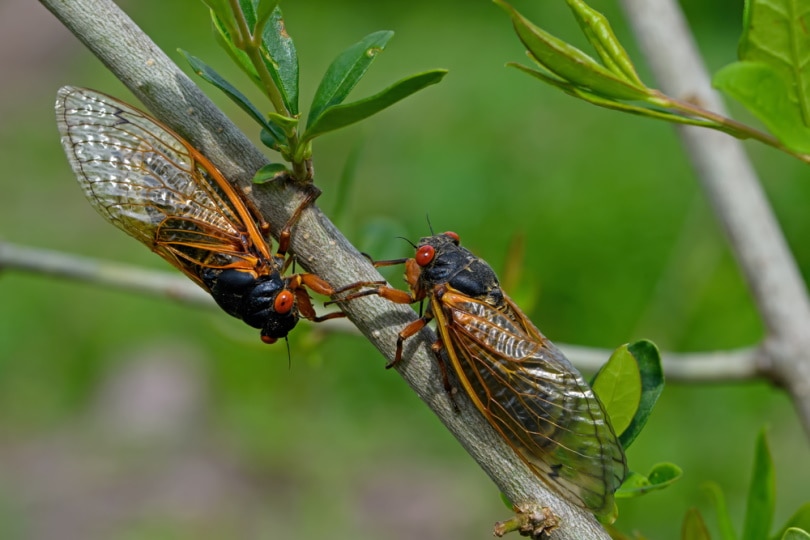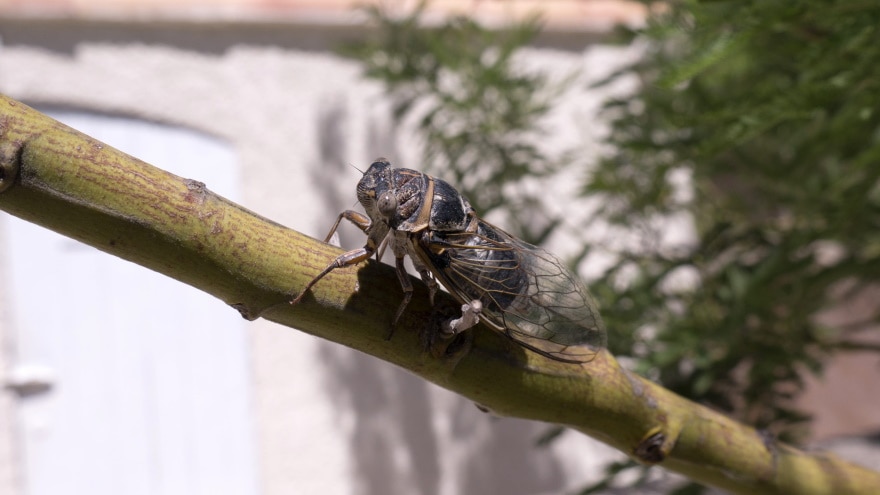How Loud Is a Cicada In Decibels (dB)? With Noise Comparison Chart
-

- Last updated:

We all deal with loud noises daily, and many of the sounds we hear are produced by insects. Cicadas can be loud because their membranes vibrate and create a buzzing, ticking, or whining sound. Scientists have concluded that a cicada makes a sound registering at 106.7 decibels, which is extremely loud for an insect.
This article will give you a better overview of how loud 106.7 decibels is and whether the sound is safe for your ears.
How Many Decibels Are Safe for Our Ears?
The louder the sound you listen to, the more consequences it can have for your ears. Most people don’t even realize that they’re exposing themselves to loud noises that could damage their hearing. The safe noise level for humans is 70 decibels, while anything over 80 decibels could impact your hearing and cause hearing loss.
Other than the actual sound level in decibels, the distance and time of the exposure will determine the impact of the sound on your hearing. Even noises with a lower decibel rate at around 70 or 80 decibels could harm your hearing if you listen to them for extended periods. Also, if you hear something loud close by, it will likely cause more damage than if you were a couple of feet away from the noise.
Many of us deal with these noises daily, and we even expose ourselves to harmful loud sounds when listening to music or watching TV. Our work environment can also be quite noisy, especially if you work in a large collective. That’s why you need to be aware of the noises around you and try to protect your hearing.

Why Do Cicadas Produce Loud Sounds?
Only male representatives of cicadas produce sounds, and they do it by bending their abdominal segment multiple times in just one second. There are various reasons why cicadas make loud sounds, although the most common one is mating.
Since females cannot produce sounds, males use this tactic to attract them, court, and later mate with them. Another common reason for cicadas making this loud noise can be stress or danger. When cicadas are disturbed or feel like they could be in danger, they will likely produce sounds to blow off some steam or scare away a predator.
Each cicada species has a unique sound that just works for their species, and they are the only insects that can produce such a loud, alarming sound.

Cicada Sounds Compared To Other Sounds We Frequently Encounter
For most people, reading that something is 106.7 decibels loud won’t have much meaning unless they actually compare that to sounds in their environment. That’s why the list below will show you how loud a cicada sound is compared to other sounds we frequently encounter.
| Noise | Noise level in decibels (dB) | Impact on your hearing |
| Breathing | 10 | None |
| Rustling leaves, whispering | 20 | |
| Whisper, a quiet rural area | 30 | Soft sounds that won’t do any harm to your hearing |
| Bird calls, a quiet library | 40 | |
| Moderate rainfall, conversation at home | 50 | Moderate sounds that won’t do any harm to your hearing |
| Dishwasher, background music | 60 | |
| Vacuum cleaner, traffic | 70 | |
| Alarm clock, food blender, garbage disposal | 80 | This sound can annoy and irritate you |
| Lawnmower, hairdryer | 90 | Hearing damage possible after 1 hour of exposure |
| Motorcycle, headphones at full volume | 100 | Hearing damage potential after 15 minutes of exposure |
| Cicada | 106.7 | Sound painful for ears, some hearing loss possible after 5 minutes of exposure |
| Car horn | 110 | Hearing loss possible within 2 minutes of exposure |
| Chain saw, thunderclap | 120 | Ear injury and immediate hearing loss |
Final Thoughts
As you can see, cicadas are extremely loud, so it’s best to avoid them when possible. Try to keep your exposure to any loud noise at a minimum to preserve your hearing and give your ears some rest so that they can function properly later in life.
Featured Image Credit: Michael G McKinne, Shutterstock
Contents

